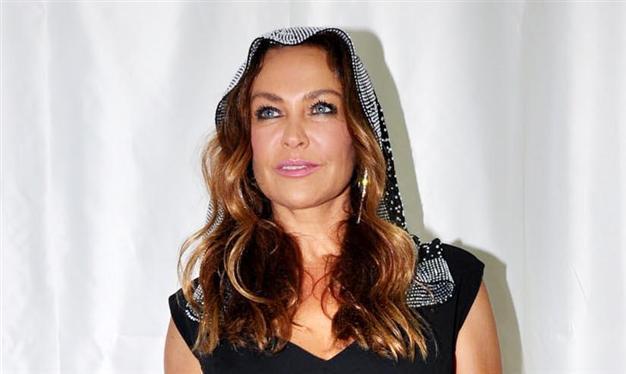Controversy starts early at Golden Oranges
Emrah Güler ANKARA - Hürriyet Daily News

One of the jury members for this year’s Golden Orange Film Festival, Levent Kırca (above L), has resigned in protest at the head of the jury, the diva of Turkish cinema and pop culture, Hülya Avşar.
What’s Turkey’s biggest cinema event, the Golden Orange Film Festival, without the anticipated controversy? There might be two months left until the festival kicks off in October, but the heat came early this year with the announcement of the jury for the national competition last week.
Cinema, competition and controversy have been running hand in hand in the southern province of Antalya almost every autumn for half a century now. The biggest cinema event in Turkey has been mocked and praised and courted and shunned for varying reasons throughout the course of its history.
But the true controversy has always centered on the national competition. Since the early days of the festival, the category has been much more than a competition. The selection of the films, the selection of the jury and the handing out of the awards, together with their aftermath, have always managed to steal the headlines away from any celebration of cinema.
In its history of more than four decades, the festival has hardly had a year in which the objectivity of the selection wasn’t somehow questioned. Having seven of the nine jury members from the Culture Ministry in 1981, just one year after a military coup, or a mole from the jury leaking the winners to the press one day before the ceremony in 1988 are some of the examples that quickly come to mind.
It was also not uncommon to see an acclaimed director take their film out of the festival to question the integrity of the selection process. Just when we were saying, in the last couple of years, that the festival had become more dynamic and more professional, this year’s controversy came with a bang.
Hülya Avşar, the ticking bombLast week, the festival announced the eclectic lineup of the national competition jury, which was already flirting with disaster with an unnecessarily large number of 13 people. The group included director Kutluğ Ataman, screenwriter Levent Kazak, cinematographer Uğur İçbak, writer Mine Kırıkkanat and actors Selçuk Yöntem and Levent Kırca, all under the direction of the veteran diva of Turkish cinema and pop culture, Hülya Avşar.
Avşar’s name at the top of the jury was a ticking bomb in a culture where the artistic elite and the “uncultured” and popular hardly mix and mingle, and where the former is more often than not expected to dismiss the latter. Originally a fresh-faced teenage beauty queen, Hülya Avşar secured her place in the last three decades as she gradually evolved into an actress, a singer, a TV show hostess, a much-publicized wife and a mother, an editor-in-chief and, most importantly, a true diva.
With her discipline, ambition, perfection and steel nerves, Avşar transformed herself into one of the infallible celebrities in Turkey, as the public watched her rise from her own ashes with every tragedy, mishap and scandal she had to endure. Having acted in more than 50 films, with such acclaimed directors as Orhan Aksoy, Sinan Çetin, Orhan Elmas, Şerif Gören, Bilge Olgaç, Yavuz Özkan, Halit Refiğ, and İrfan Tözüm, Avşar won the very first Lifetime Achievement Award at the Golden Orange four years ago.
Soon after the jury was announced, two names resigned from it. One was Ataman, the director who had worked with Avşar in “İki Genç Kız” (Two Girls), due to a conflicting production schedule. The other was Kırca, a comedian, stage, TV and film actor with a career as old as the Golden Oranges who quit in reaction to Avşar’s selection as the head of jury. Kırca released a remarkably harsh statement, accusing Avşar of “lowering the bar of the quality of the jury,” and “not fit” on grounds of her “lack of general culture and cinema knowledge.”
‘Go get them girl!’While the other jury members have chosen to stay silent, the festival’s general coordinator, Göksel Kumsal, and Antalya Metropolitan Mayor Mustafa Akaydın released statements standing behind their selection of Avşar and their disappointment at Kırca’s reaction. Ertuğrul Özkök, daily Hürriyet’s columnist, wrote that throughout his career, Kırca had played to the same crowd with Avşar, and Kırca’s reaction was merely “self-serving” and it was “less to Hülya Avşar’s selection as the head of jury than a reaction to a woman who isn’t afraid to stand up and speak her mind.”
Fatih Altaylı, daily Habertürk editor-in-chief, wrote in a similar, if a bit in a more condescending tone, and reminded his readers of the infamous hunger strike Kırca attempted in 1998 against a decision by media watchdog RTÜK to ban his TV show; the action only lasted a day, leading many to dub it as “the hunger strike between two meals.” Altaylı accused Kırca of creating controversy for the sake of controversy, describing it as “an opportunity to be in the news.”
“Criticizing Hülya Avşar’s selection as head of the jury is nothing but the intellectual snobbism of an underdeveloped country,” Ataman later tweeted, ending his Twitter message in English: “Go get them girl! We love u!”
Proving three decades of steel nerves against criticism once again, it was Avşar who had the last word: “Let everyone get it off their chest. I’m celebrating the 30th year of my career. Even those who criticize my selection as the head of jury praise my ‘acting skills.’ I never give up and run away from criticism.” It will be a fun few months watching the run-up to the Golden Oranges, if not for cinema.
